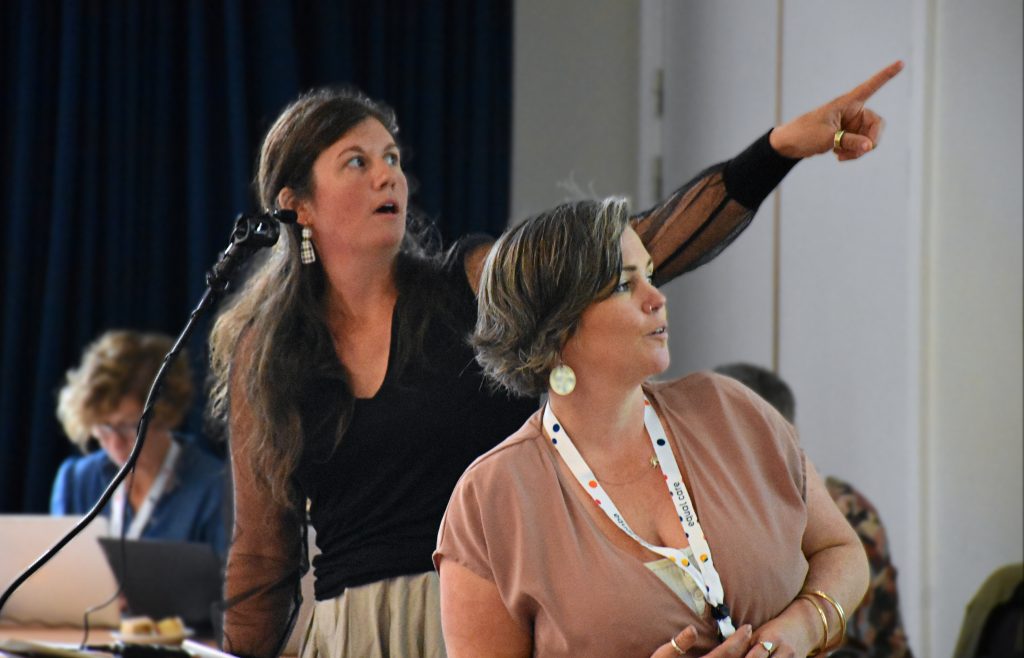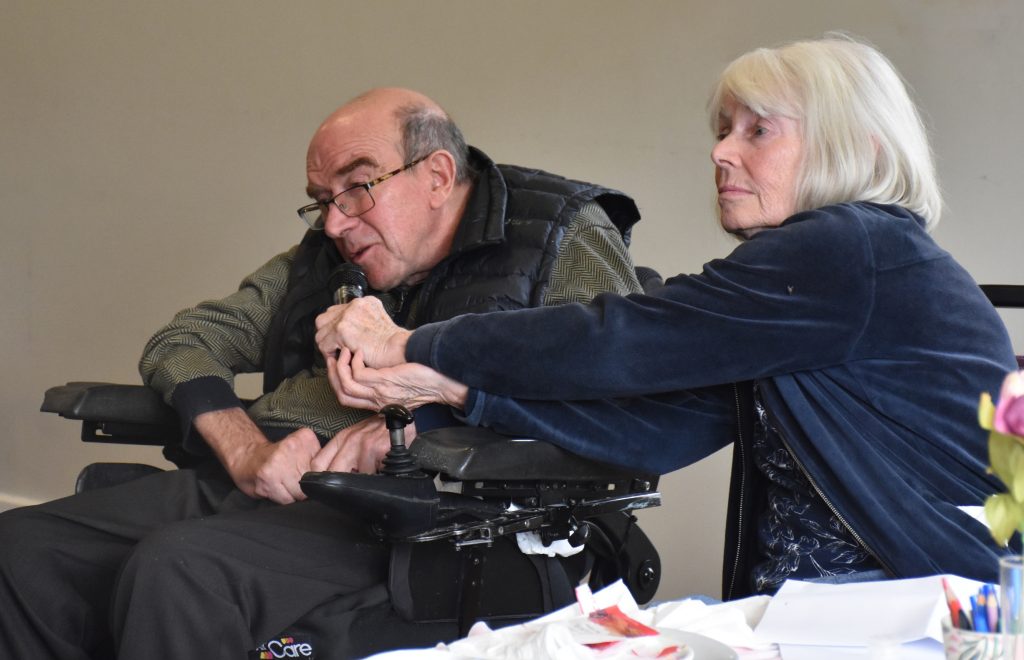A social care co-op is continuing to make a difference to the quality of life for vulnerable people and their families.
Equal Care Co-op was founded six years ago with the aim of shifting the balance of power away from an often impersonal, privatised service towards a kinder way of receiving and providing care.
Based in Hebden Bridge, West Yorkshire, its focus on empowering care workers, family and friends comes at a time when Britain’s social care crisis is greater than ever.
In the co-op’s local authority area of Calderdale, the provision of adult health and social care services accounts for around 70% of the council’s annual budget expenditure. That situation is replicated across towns and cities across the UK, where an estimated 500,000 people are waiting for care services and there is a desperate shortage of care workers due to low wages and often poor working conditions.
As average life expectancy increases in the years ahead, those challenges are likely to be greater than ever. Since 2018, Equal Care has been pioneering an alternative way forward by refocusing power and control over care onto the most important people involved – those receiving care and the people providing it.
Quality of work
In a notoriously low-wage sector, care and support workers at Equal Care receive a Real Living Wage (plus travel expenses) without increasing costs for families. People receiving care can build their own team, including family members, community volunteers, and independent or employed care workers, for as long as they are needed via a unique self-governance model. The focus is on individualised care packages, fostering a more genuine and fulfilling caregiving experience.

Co-founder Emma Back has years of experience in social care and community development, specialising in mental health. Her personal experiences have shaped the vision of the organisation.
“I saw how power operates in ‘business as usual’ organisations and how the social care system was structured and funded, how power sits with commissioners and managers and the systemic problems that went with that,” she says.
“My aunt was diagnosed with cancer, which was a horrible situation, but I saw how she
had a lot of support from family and friends, as well as excellent healthcare services – a big contrast with how I’d seen people treated in the mental health and social care systems, how services are commissioned and how care workers are usually treated.
“At the time I was tendering for mental health charities and I saw how ideals turn into reality, how organisations work, how legislation forces you to act and all the ways you might end up distorting care relationships when all you are looking for is empathy and kindness via a person-to-person relationship. I saw lots of people in that situation ending in a downward spiral. It seemed a good idea to me to look at what happens between people in care and support relationships and why the current system isn’t geared around that.”
People-led
Back’s commitment to a different way of doing things led to the founding of Equal Care Co-op in 2018 with the aim of handing power back to people on the front line of care. Initial help came from a crowdfunder which raised £22,000 as well as grants from organisations such as the Paul Hamlyn Foundation, and mentoring and funding from Co-operatives UK.
“We had been meeting for about a year before that,” says Back, “to discuss first principles around creating a viable, alternative and pioneering co-operative model for social care and exploring what kind of model would work. It was important to have those conversations and not fall into too many bear traps.”
Six years on there are 200 investor members (minimum investment £100) who support the co-op, 25 to 30 worker members (paid workers, volunteers and peer supporters) and 90 carer support workers – plus a small team performing other duties such as peer supervision and interviewing family members. Around 70 people in the Calderdale area are receiving care through the co-op.
Its online platform allows those receiving support to build and manage their own care team, which can include family members, paid care workers, volunteers and friends. These vary in numbers depending on personal circumstances – but all are in constant touch with each other, communicating through online tools like Google Workspace as well as in-person meetings. The teams are backed up by circles offering back-up support on issues like training and overall wellbeing.
“The remit is they cannot interfere in how support is happening,” says Back. “They are there to help teams start, flourish and finish. If there are not enough members in a team the local circle can step in and look at issues like worker wellbeing and train people up to start new workers teams.”
After six years the co-op is breaking even and in a more secure financial position: quite an achievement considering the Covid-19 pandemic hit only 18 months after its launch – putting things on ice for several years. “It was the worst possible timing,” says Back. “We had raised capital, employed the team and even with furlough support it was a real struggle.”

A pilot in Islington, north London, has recently come to an end because of challenges over funding, but the co-op enjoys a good relationship with Calderdale Council and the local CCG (clinical commissioning group) – and Back still hopes the model can thrive not just nationally but internationally.
It is now hoped that new legislation around co-op funding will follow the current Law Commission Review and open channels to further expansion beyond Calderdale.
“We need seven-figure sums to be able to invest beyond Calderdale, so we need the legislation to change – but we are really optimistic about the future,” says Back. “Our model and approach are not just working but working at the same cost as ‘business as usual’ social care. We are on the cusp of being able to be in rooms having conversations round tables with people who are now frontbench MPs.
“Now there is a new government we will be lobbying ministers and raising our profile as we adapt and change. We are also talking to people in Australia, the US and France who are interested in our model.
“Experiences in our teams have included ‘reversing’ symptoms of dementia exacerbated by the revolving door of different faces from the previous agency, enabling people to stay at home for much longer than they could have, family members being able to go back to work, care workers experiencing decently paid work, volunteers helping build resilience in teams, working with people getting support, family members and care workers alike.”
She adds: “We have built up enough experience to know that the way we do care and support is significantly better than the norm. Although the numbers are still small, the indications are that we’ve got an approach to social care that actually works for the people this whole social care system is supposed to serve.”

